Quantum computing and quantum physics sound like the stuff of science fiction: everything is made of waves AND particles, matter can be present in the same place at the same time, and particles can be sent to the other side of the galaxy but still remain connected. Mind-bending? Yes. Science fiction? Not anymore. This article explores what quantum computers are and what kind of threat they pose to the crypto industry.
Problem
Scientists and researchers are beginning to harness the power of quantum physics to build powerful computers with the capability to break the world’s encryption algorithms. Beyond only blockchains, quantum computing could threaten the security of the global financial system, top-secret intelligence agencies, as well as all the data on your phone.
What is quantum physics?
Also known as quantum mechanics, quantum physics is a type of physics that only applies to things that are small enough for their rules to apply. In classical physics, nearly everything behaves in a predictable way—calculations and measurements can be exact. Once you start studying objects at the size of quantum physics, things become much more unpredictable.
Measurements and calculations in quantum physics are not guaranteed to be accurate—they can only be guessed using probabilities. At the quantum level, particles can start behaving like waves and even change states suddenly depending on whether or not it is being observed. In the quantum realm, everything becomes uncertain.
What is a quantum computer?
By harnessing the laws of quantum mechanics, quantum computers can be exponentially more powerful than our most advanced modern computers. The most important thing to understand about quantum computers is quantum bits or qubits. A classical computer uses bits, which are represented by “0”s and “1”s. Normal bits are binary—it’s either on or off—one state at a time. Qubits can be a “0”, a “1”, switch between them, or be both at the same time. Because the basic units of quantum computers are these magical-seeming qubits, quantum computers can perform functions or calculations at a rate that normal computers can’t even come close to—why they may one day be able to break the encryption in crypto.
Here's an example: If we have four bits from a normal computer, they can be in any one of 16 combinations, i.e. 1000, 1100, 1110, but you can only choose it to be in one when making a calculation. With four qubits however, they can be in all of those 16 positions at once, and the number grows exponentially the more cubits you add. Just 20 qubits can store more than a million values in parallel, which allows a quantum computer to be able to work through a problem by performing calculations in parallel rather than one at a time.
Who invented it?
The idea of quantum mechanics can be traced back to research in 1900 by Max Planck who is considered the father of quantum theory. Quantum computers would come later in the 1980s and 1970s when Paul Benioff proved it was possible to build a computer that operated under the laws of quantum physics.
What’s so special about quantum computing?
Because a qubit can switch between states—be it a “1”, “0”, or be in multiple states at the same time, qubits can do multiple computations in parallel or simultaneously. Qubits allow quantum computers to process complex calculations so quickly that while a normal computer would take over half a billion years to break Bitcoin’s encryption, a quantum computer could to break it in under 10 minutes.
Did you know?
“The exact physical mechanism at work within the quantum computer is somewhat theoretically complex and intuitively disturbing. Generally, it is explained in terms of the multi-world interpretation of quantum physics, wherein the computer
performs calculations not only in our universe but also in other universes simultaneously.” -- Andrew Zimmerman Jones (author of “String Theory for Dummies”)
How are quantum computers made?
Traditional computers are essentially made up of millions of tiny switches that manage the flow of electrons. But as we have shrunk those gates down to the sub-atomic level, the ability to control whether electricity flows through a gate or not becomes, well, a bit weird. Through an idea called quantum tunneling, when we get to the sub-atomic level, electrons can simply hop over the gate at will rendering a machine's ability to manage that flow useless. As a result, quantum computers are made very differently.
They work in the weird and wonderful world of sub-atomic particles, where qubits do strange things like being in any one of 16 states at the same time–until they are observed by which they collapse into one state. As a result, a 'quantum gate', as opposed to a 'logic gate' which is used in traditional computing goes through a process whereby it sets up some qubits, applies quantum gates to 'entangle' them, manipulates the possible probabilities, and then measures the outcome. Confused? Yeah, it's a real head-spinner.
But what you need to understand is, to be able to control this process, Google, for example, is using a special superconductive metal operating at temperatures that are eight times colder than space, which is a far cry from computer sat on a desk. As a result, quantum computers are unlikely to be leaving the lab any time soon.
Should I be worried?
According to smart people like Etherum founder Vitalik Buterin and crypto evangelist Andreas Antonopolous, there’s no need to panic about quantum computers just yet. According to Antonopolous, quantum computers are currently nowhere near powerful enough to break something like Bitcoin.
In theory, quantum computing could break the cryptography securing crypto assets like Bitcoin and Ethereum, but Buterin reasons that quantum computers like the one announced by Google are more proofs of concepts than fully realized technologies. The current cryptography used in major blockchains may also be strong enough to resist even fully realized quantum computers meaning not all cryptography would be vulnerable.
Quantum computers can not only be used to break cryptography—they could also help build more powerful encryption. Upgrade plans are in place for blockchains like Ethereum to resist quantum computers.
The Future
Even if we’re safe for now, the crypto world is not taking any chances. Quantum resistant blockchains like Praxxis and QAN are already under development in preparation for the potential quantum apocalypse. We can rest assured knowing—even if quantum computers start taking over the world—our crypto will be safe.






